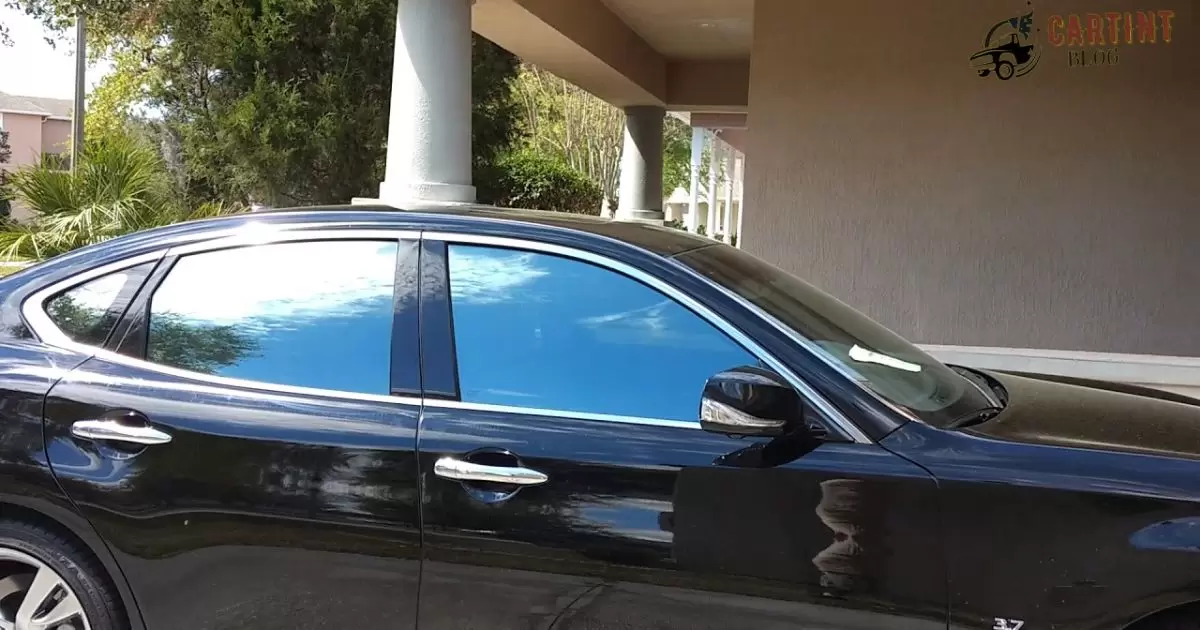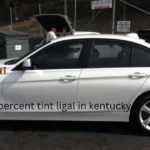Window tint on a car refers to a dark film applied to windows. Probable cause means a valid reason for suspicion. The question explores if having tinted windows gives police a reason to search a car. It involves legal considerations and rights related to privacy and law enforcement.
Ever wondered, Is Window Tint a Probable Cause To Search Car? Unravelling the legal puzzle behind tinted windows, this exploration delves into the intriguing question of whether the mere presence of window tint provides law enforcement with enough grounds to search your car.
Stay with us to uncover the legal insights surrounding tinted windows and whether they can be a basis for a vehicle search. We’ll explore the fine line between personal privacy and law enforcement authority, shedding light on this intriguing topic. Join us for a brief yet informative journey into the world of window tint and probable cause.
Legal Debate: Window Tint And Searches
In the legal realm, a hot debate centers around the question: Is Window Tint a Probable Cause To Search Car? This issue probes the boundaries of personal privacy versus law enforcement authority. Courts grapple with determining if the presence of tinted windows alone provides enough justification for a vehicle search.
Advocates argue that window tint serves as a visual barrier, safeguarding individuals’ privacy. On the flip side, law enforcement contends that overly dark tints may conceal illegal activities, potentially justifying a search. The ongoing legal discussion seeks to strike a balance between protecting individual rights and enabling effective policing.
Tinted Windows: Grounds For Inspection?
This question delves into the legal realm, exploring the connection between window tint and probable cause. Examining the thin boundary between personal privacy and law enforcement rights, we aim to unravel the complexities surrounding tinted windows and their potential implications on vehicle inspections.
In this exploration, we seek clarity on whether the presence of tinted windows automatically provides grounds for inspection. Navigating through legal nuances, our focus is to shed light on the debate surrounding privacy and authority, offering a concise understanding of the relationship between window tint and the potential justification for a vehicle search.
Constitutional Rights Clash: Tinted Windows
In the clash of constitutional rights, the debate over tinted windows takes center stage. Individuals assert their right to privacy, arguing that tinted windows shield them from unwarranted scrutiny.
On the flip side, law enforcement contends that excessively dark tints can impede their ability to ensure public safety, sparking a nuanced discussion at the intersection of personal freedom and societal security.In this ongoing discourse, the tension revolves around finding a delicate balance between individual liberties and collective well-being.
It’s a constitutional tug-of-war with tinted windows as the focal point, raising crucial questions about the scope of personal privacy in a society that seeks to uphold both individual rights and communal safety.
Privacy Vs. Probable Cause: Tinted Windows
| Aspect | Privacy Concerns | Probable Cause Considerations |
| Individual Rights | Tinted windows are seen as a safeguard for personal privacy. | Law enforcement argues that excessively dark tints may hinder visibility, impacting their ability to establish probable cause. |
| Legal Implications | Privacy advocates emphasize the right to protect personal space. | Courts must navigate the balance between individual privacy rights and the need for probable cause in law enforcement activities. |
| Law Enforcement View | Dark tints can raise suspicions, but they may not necessarily indicate illegal activity. | The challenge is to distinguish between legitimate privacy concerns and situations where probable cause is justified. |
| Public Safety | Privacy is crucial, but not at the expense of public safety. | Balancing privacy rights with the responsibility of law enforcement to ensure public order is key for a harmonious society. |
This table provides a snapshot of the contrasting perspectives in the ongoing debate over tinted windows, weighing the importance of privacy against the considerations of probable cause.
Judicial Puzzle: Tinted Windows Search
Fourth Amendment And Window Tint
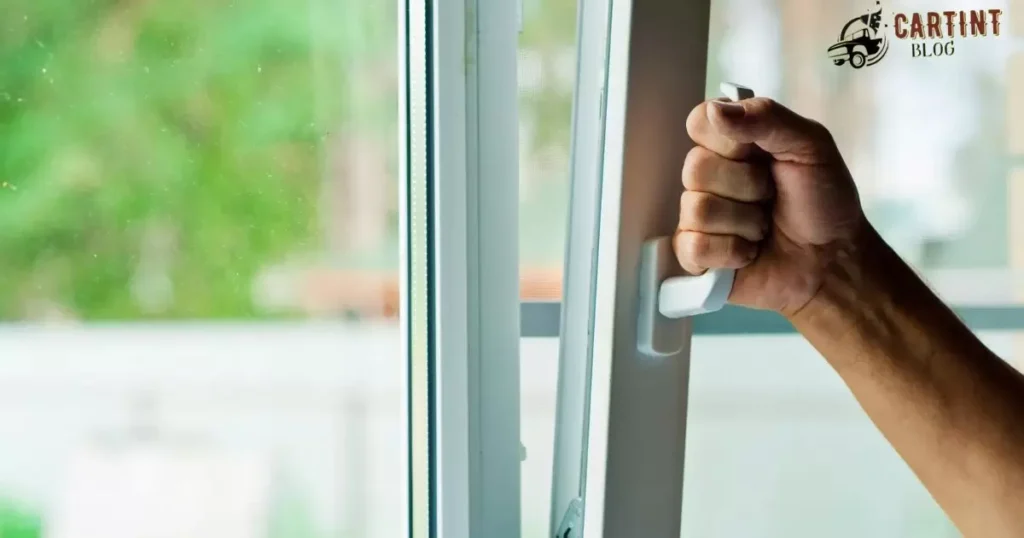
The Fourth Amendment safeguards against unreasonable searches and seizures, ensuring individuals’ right to privacy. When it comes to window tint, understanding its implications on Fourth Amendment rights is crucial.
Courts often assess whether law enforcement has a valid reason, or probable cause, to search a vehicle with tinted windows, emphasizing the delicate balance between personal privacy and public safety.Window tint, while providing privacy, can raise questions about probable cause during traffic stops.
Courts consider factors like visibility impairment and safety concerns to determine the constitutionality of a search. This ongoing legal discussion underscores the importance of navigating the intersection between individual liberties protected by the Fourth Amendment and law enforcement’s duty to maintain public safety.
Tinted Glass: Search Warrant Trigger?
Tinted glass on vehicles sparks the question: Does it trigger a search warrant? Examining this, we find that law enforcement may consider tinted windows as a potential reason to search a car.
The debate hinges on the balance between individual privacy rights and the need for police intervention.Navigating the legal landscape, it becomes clear that the presence of tinted glass can be a factor leading to a search.
This issue is nuanced, with ongoing discussions about the extent of police authority and the protection of personal privacy. The question of whether tinted glass serves as a search warrant trigger remains a subject of legal scrutiny and public discourse.
Traffic Stops: Tinted Windows Scrutiny
In traffic stops, law enforcement often scrutinizes vehicles with tinted windows. Officers commonly inspect tint levels, ensuring compliance with regulations. Tinted windows can draw attention, prompting closer scrutiny during routine traffic checks.
Police Search Your Car For Tinted Windows, aiming to maintain clear visibility inside vehicles for their safety and effective communication. Consequently, understanding the reasons behind this scrutiny sheds light on the balance between individual preferences and public safety during routine traffic interactions.
Legal Grey Area: Tinted Windows
In the realm of automotive legality, tinted windows occupy a distinct legal grey area. The debate revolves around whether law enforcement can use the presence of window tint as probable cause to search a car.
This issue hinges on the delicate balance between individual privacy rights and the authority of law enforcement officers.While some argue that tinted windows provide a shield of privacy for occupants, others contend that it creates a potential cover for illicit activities.
As we navigate this legal grey area, it becomes essential to understand the implications of window tint on the delicate scales of personal freedom and law enforcement prerogatives. The discussion unfolds in a nuanced landscape where clarity is sought amidst the shadows cast by tinted windows.
Supreme Court On Tinted Windows
In a landmark decision, the Supreme Court addressed the issue of tinted windows, clarifying their stance on privacy and law enforcement. The court emphasized that tinted windows alone do not constitute probable cause for a vehicle search.
Instead, the ruling highlights the need for law enforcement to establish clear and specific reasons for suspicion before conducting such searches.This Supreme Court verdict marks a crucial milestone in protecting individuals’ rights regarding their vehicles’ privacy.
It underscores the importance of a balanced approach, ensuring that law enforcement acts within the boundaries of the law while respecting citizens’ rights when it comes to issues like tinted windows and probable cause for search.
Tinted Car Windows And Law Enforcement
Tinted car windows have become a point of contention in encounters with law enforcement. When officers encounter vehicles with heavily tinted windows, they may face challenges in visually assessing the occupants or potential threats.
The debate revolves around whether tinted windows alone can serve as a valid reason for law enforcement to initiate a vehicle search.Law enforcement agencies argue that tinted windows can impede their ability to ensure public safety, as it limits their visibility during traffic stops.
Concerns arise about the balance between maintaining privacy rights and allowing police discretion. The intersection of tinted car windows and law enforcement practices continues to be a complex and evolving issue within the legal landscape.
Unveiling The Truth: Tinted Windows
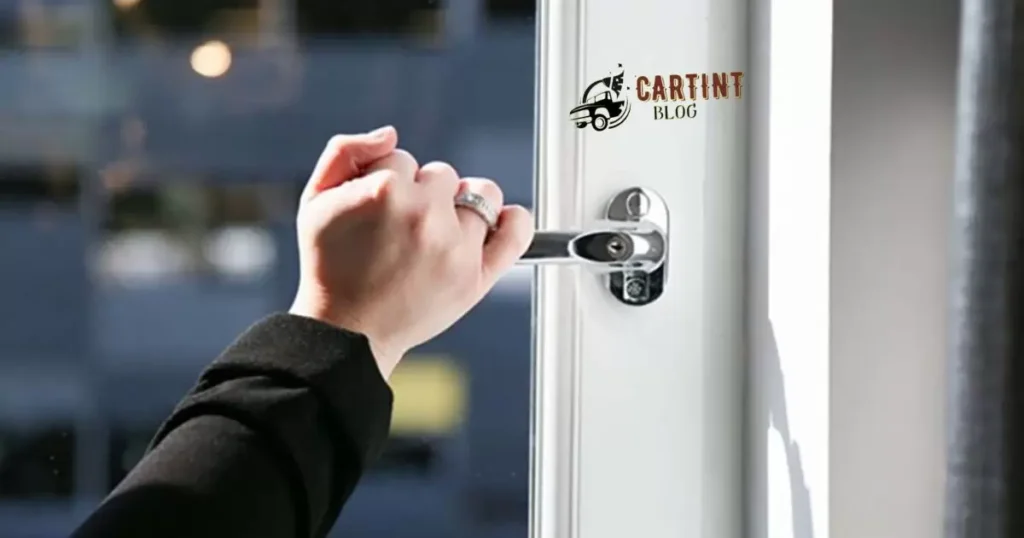
Curious minds often ponder the question: Is Window Tint a Probable Cause To Search Car? This inquiry delves into the legal landscape surrounding tinted windows, exploring whether their presence offers law enforcement valid grounds for a vehicle search.
We navigate the intersection of personal privacy and police authority, unravelling the complexities of this debate.In this exploration, we uncover the nuances of tinted windows and probable cause, shedding light on the legal considerations that govern our daily commutes.
Civil Liberties: Tinted Windows Dilemma
In the realm of civil liberties, the tinted windows dilemma raises intriguing questions. Many wonder if having tinted windows in a car becomes a reason for law enforcement to conduct a search.
This debate hinges on the balance between personal privacy and the authority of law enforcement agencies.Exploring the legal intricacies, it becomes evident that the presence of tinted windows may not automatically constitute probable cause for a car search.
Individuals are keen to understand their rights and the boundaries that govern law enforcement actions in relation to window tint. This ongoing discussion within civil liberties highlights the delicate equilibrium between individual freedoms and the responsibilities of those enforcing the law.
Rethinking Traffic Stops: Tinted Windows
In the realm of traffic stops, reconsidering the role of tinted windows is crucial. Tinted windows can obscure visibility, raising concerns for law enforcement during routine stops. Addressing this issue involves balancing individual rights with the need for safety on the roads.
Taking a fresh perspective on traffic stops, the focus shifts to the impact of tinted windows. These windows, while providing privacy, also pose challenges for police officers in assessing potential threats. Balancing these considerations prompts a reevaluation of the norms surrounding tinted windows during traffic stops.
Police Discretion: Tinted Windows Searches
In law enforcement, officers exercise discretion when dealing with tinted windows. They decide whether to initiate searches based on their judgment rather than strict rules. Tinted windows can prompt police action, but the outcome often relies on the officer’s discretion and the context of the situation.
The presence of tinted windows doesn’t automatically lead to searches; instead, it opens the door for police discretion. Officers weigh factors such as visibility, safety concerns, and potential criminal activity when deciding whether to further investigate a vehicle with tinted windows.
Tinted Privacy: Limits To Searches
Unlocking the debate on tinted privacy, this exploration delves into the question: Is Window Tint a Probable Cause To Search Car? We examine the legal boundaries, navigating the intricate relationship between tinted windows and law enforcement scrutiny.
Discover the limits to searches and the crucial balance between personal privacy and police authority in this concise exploration.In a world of blurred lines, understanding the implications of window tint on vehicle searches becomes paramount.
This investigation sheds light on the restrictions imposed on law enforcement, emphasizing the need for a clear understanding of the constraints surrounding tinted privacy. Join us in unraveling the dynamics that define the limits to searches in the realm of tinted windows.
Car Searches: Tinted Windows Influence
Key Question
Exploration of whether tinted windows serve as probable cause for car searches.
Legal Dynamics
Examination of the legal boundaries and considerations surrounding the influence of tinted windows on vehicle searches.
Privacy vs. Authority
Discussion on the delicate balance between personal privacy rights and law enforcement authority.
Implications
Insights into how the presence of window tint may impact the limits imposed on searches.
Clearing the Fog
Unraveling the complexities surrounding tinted windows and their role in shaping the parameters of law enforcement actions.
Tinted Glass: Legal Precedents Explored
Tinted glass, a common vehicle modification, sparks questions about its legality. Examining legal precedents reveals that different jurisdictions have varying rules regarding window tint. Understanding these regulations is crucial for drivers seeking to personalize their vehicles while staying on the right side of the law.
From state to state, the legal landscape around tinted glass remains diverse, making it essential for car owners to be well-informed. These regulations often hinge on factors such as light transmission percentages and the visibility of occupants.
Navigating the legal nuances ensures that tinted windows serve as a personalized touch rather than an unwitting invitation to legal complications.
The Thin Line: Tinted Windows
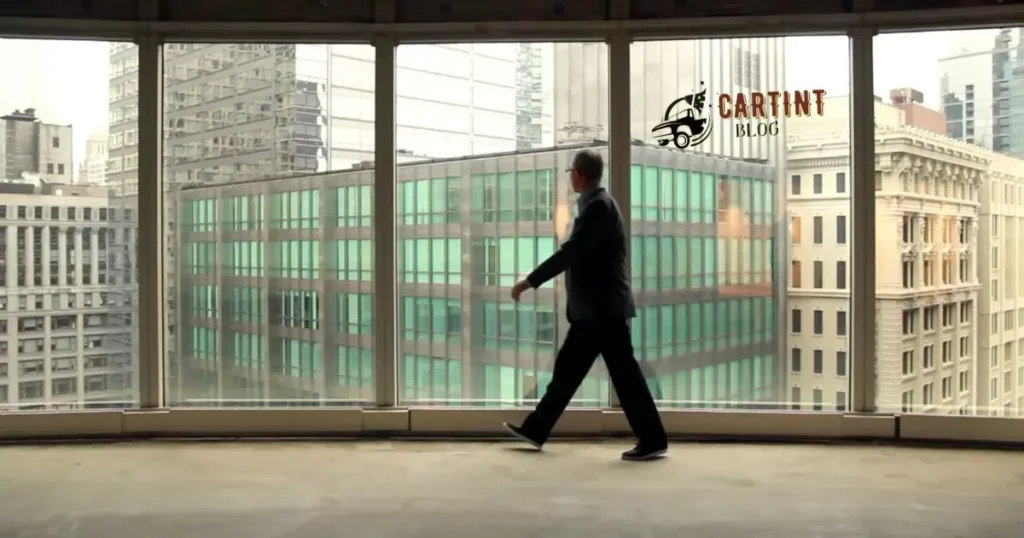
In the realm of automotive privacy, the question arises: Is Window Tint a Probable Cause To Search Car? This inquiry navigates the legal landscape, examining the delicate balance between personal rights and law enforcement prerogatives.
Window tint, a popular addition for many drivers, becomes a focal point as we delve into the potential implications it holds for vehicle searches. Join us as we unravel the intricacies of this issue, shedding light on the boundaries between individual freedoms and the authority of the law.
The Thin Line: Tinted Windows introduces us to the intricate web of legal considerations surrounding automotive privacy. With a spotlight on the relationship between window tint and probable cause for search, this exploration invites you to grasp the nuanced dynamics at play.
Constitutionality Of Tinted Windows Searches
In assessing the constitutionality of searches related to tinted windows, we examine the balance between individual rights and law enforcement prerogatives. The Constitution safeguards citizens against unreasonable searches, prompting scrutiny over whether having tinted windows alone constitutes a justifiable cause for a search.
This ongoing debate hinges on interpreting the Fourth Amendment and navigating the delicate equilibrium between privacy and public safety.Examining the constitutionality of tinted window searches involves parsing legal precedents and discerning the evolving landscape of privacy rights.
Courts grapple with defining the boundaries where an individual’s expectation of privacy intersects with the need for police intervention. As this discourse unfolds, it prompts a critical examination of constitutional principles to determine the legitimacy of searches prompted solely by the presence of tinted windows.
FAQ’s
How strict are Florida tint laws?
Florida tint laws are moderately strict. Front side windows must allow over 28% light, while back side and rear windows can have any darkness.
What is the darkest legal tint in Florida?
The darkest legal tint in Florida is 28% for front side windows. Back side and rear windows have no specific darkness limit.
Is 35% tint illegal in Florida?
Yes, 35% tint is illegal for front side windows in Florida. The law requires them to allow more than 28% light transmission.
Conclusion
In conclusion, the question Is Window Tint a Probable Cause To Search Car? unveils a complex interplay between individual privacy rights and law enforcement authority. While tinted windows alone may not automatically constitute probable cause, legal considerations remain crucial.
The interpretation of constitutional protections against unreasonable searches, particularly under the Fourth Amendment, underscores the need for a delicate balance between public safety and personal privacy.

